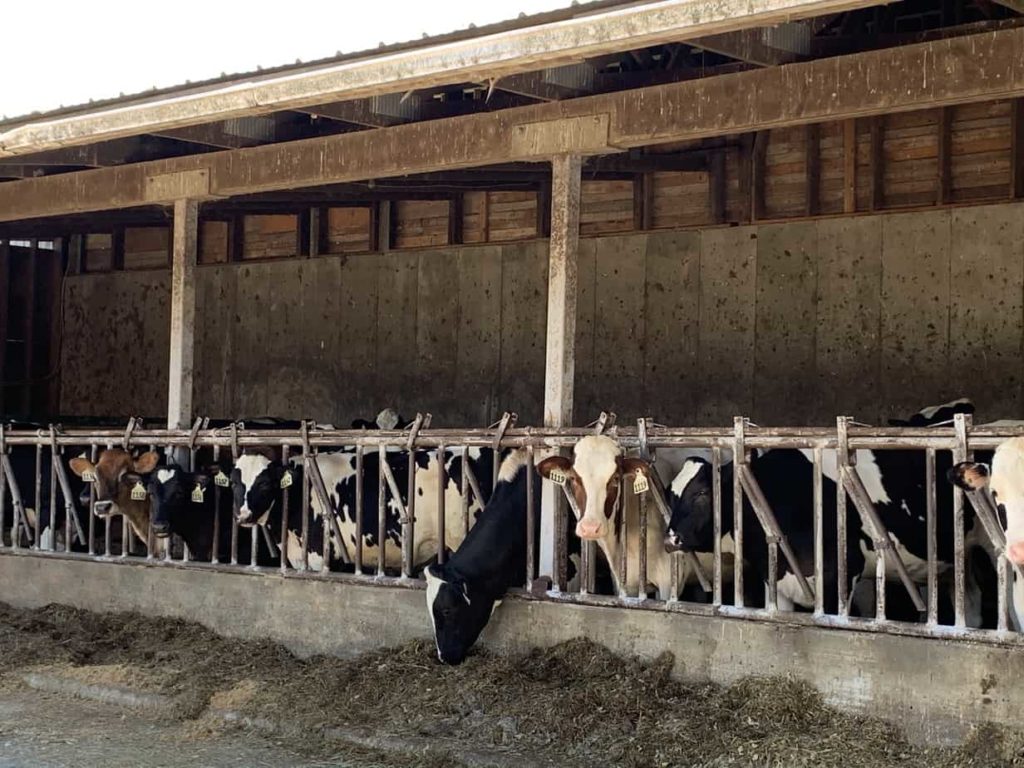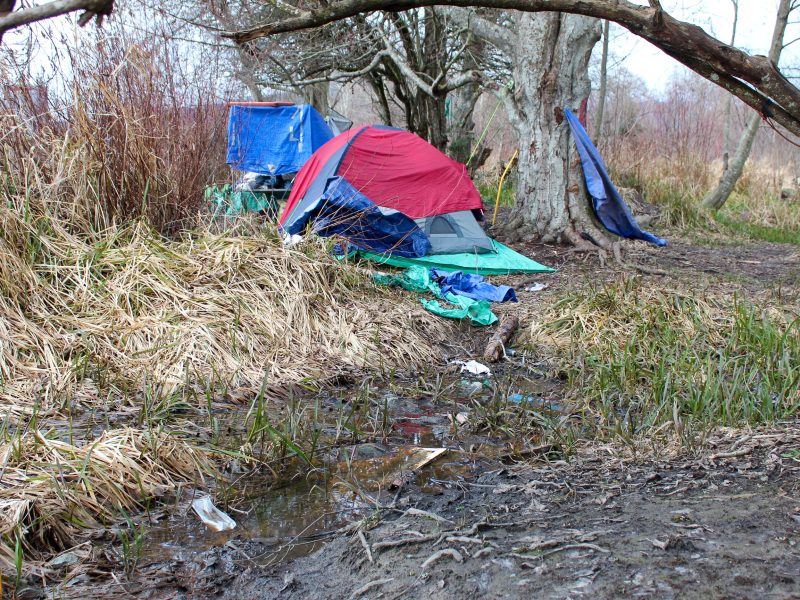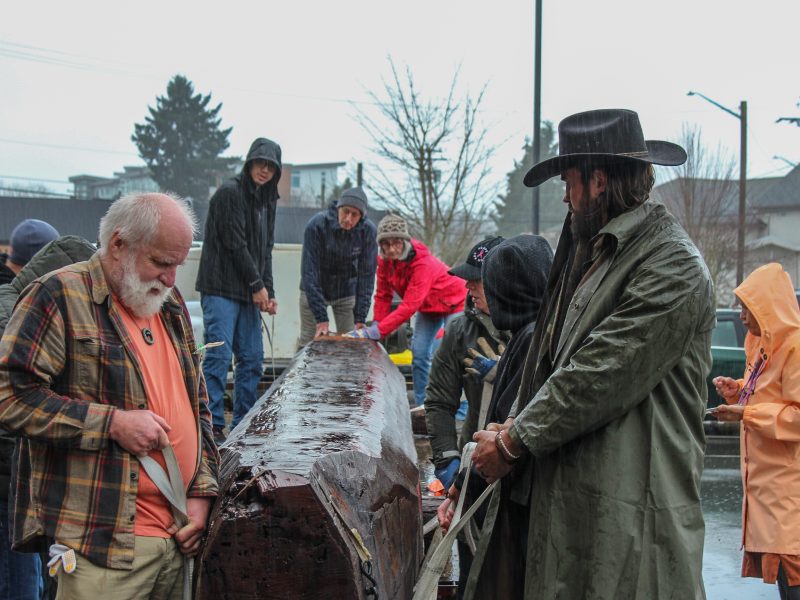
Election day is tomorrow, and The Discourse spoke with Cowichan Valley MLA candidates about their plans to ensure food security in the region.
We had conversations with BC Green Party candidate and leader Sonia Furstenau and BC NDP candidate Rob Douglas. BC Liberal Party candidate Tanya Kaul declined an interview request.
As previously reported by The Discourse, COVID-19 has peeled back the curtain on food security issues. According to the Cowichan Green Community, food security is achieved when “all members of the community have access to enough nutritious, safe, ecologically sustainable and culturally appropriate food at all times.”
A 2017 University of Victoria report says in 2011 and 2012, 11,571 people who were 12 years of age or older in Central Vancouver Island were moderately food insecure. There were 7,399 people in the same age group who were severely food insecure. Of those aged 20 to 34, 4,659 people were moderately and severely food insecure and 1,426 people aged 65 and older were moderately and severely food insecure.
Judy Stafford, executive director of the Cowichan Green Community previously told The Discourse that the pandemic has also made people realize our food systems are precarious.
How to ensure food security?
When asked what can be done to ensure there is food security on the Island for everyone, Furstenau says she thinks it first and foremost needs to be identified as a priority. She says that food security should be a mandate of the Agricultural Land Commission so that those making agricultural policies put a food security lens on their decision-making process.
Next, she says good ecological practices – including organic food growing – should be put in place and encouraged to protect soil. Support should be offered to farmers to transition to more ecologically friendly, organic practices.
Water also needs to be examined, Furstenau says, by fully bringing the Water Sustainability Act into force, to ensure there is sustainable water access for everyone in the province while not impacting farmers.
“What we should be looking at if we’re talking about food security is all sorts of things that go into impacting water use,” Furstenau says. “So if we’re looking at the Koksilah, we know that logging practices upstream are impacting the water levels … We also know that industrial use is impacting water levels in the Koksilah.”
Furstenau says that if the government is serious about food security, then it has to ensure that agricultural and sustainable use of water for food production is prioritized.
Douglas, the NDP candidate, says the pandemic has brought food security into focus, noting that protecting farmland and working to get fresh, local food to people in the region and province is “more important than ever.”
He outlines some of the steps the BC NDP government has taken to protect land and help farmers, such as banning mega mansions and stopping garbage- and fill-dumping on farms. He says the BC NDP government also invested in programs like Feed BC, Grow BC and Buy BC to help secure local food supply.
The Land Matching program, in collaboration with the Young Agrarians, has also helped new farmers access land, he says.
Read more about how the Land Matching program helped a young farming couple put down roots in the Cowichan Valley.

Watersheds and food security
Last summer, the province implemented water restrictions on using water from the Koksilah River to irrigate forage crops to feed livestock. The decision was made to protect fish populations in the river, the province said.
Furstenau says the restrictions impacted farmers, particularly dairy farmers, and the decision left her asking the question as to why industrial use of water from the river was allowed to continue. It was a question that went unanswered, she says.
The low water levels in the river were an example of how land use decisions from years earlier – in this case, logging practices upstream – impacted ecological systems and food security later on, Furstenau says.
“We knew what would happen, which is the impact to the capacity of that watershed to retain water during periods of extended drought,” Furstenau says.
In an email, The Discourse asked Douglas about the same water restrictions and logging practices Furstenau mentions and asked what could be done to help dairy farmers as well as protect watersheds without harming food security in the region. He replied by saying protecting clean water is an important responsibility and outlines commitments made in the BC NDP platform, including creating a watershed security strategy to manage and protect local watersheds. Another point he brings up is the BC NDP plan to partner with the federal government to establish a watershed security fund for Indigenous-, locally- and regionally-led clean water initiatives.

What’s next for food security?
Moving forward, Douglas says the BC NDP government has committed to strengthening already existing programs, creating jobs in the agriculture sector and supporting new companies who are bringing innovation to agriculture.
“There are a lot of great programs out there right now from this government but we need to do more to connect our local farmers to some of these supports,” Douglas says. “That’s really what I want to do as MLA is to provide that connection, to be the strong voice for the local agricultural industry.”
Furstenau says the government needs to recognize how its practices can either undermine or improve long-term food security.
“I think what we need is far more urgency, far more realization that time is running out, and far more recognition that everything is connected,” Furstenau says. “And until we recognize and start from that place, we’re going to continue to make decisions that undermine our long-term health and well-being and our long-term security and vision.”
Dig deeper:
- The BC NDP platform has a search function that allows readers to look up specific commitments. Under food security, two sections come up that address the issue and agricultural issues. The platform can be viewed online.
- The BC Green Party platform outlines 11 different commitments under its food security section, such as creating a strategy to make agriculture more climate resilient, establishing a food sustainability strategy to decrease reliance on import supply chains and creating a publicly-owned agricultural land bank available to lease by new farmers.
- The BC Liberal Party platform has a section on commitments for farmers and ranchers and also commits to supporting food share programs to keep food out of landfills. [end]



